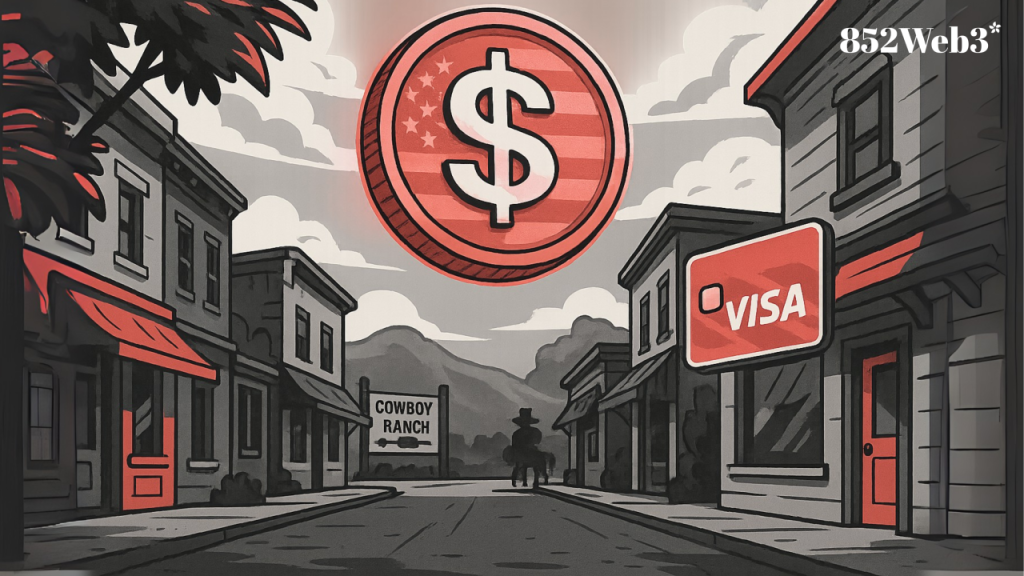A state-backed “digital dollar” has officially hit the market—Wyoming’s FRNT isn’t just on-chain, it’s built for everyday payments.

From Legislation to Mainnet
Wyoming has officially rolled out the Frontier Stable Token (FRNT), making it the first U.S. state to issue a fully reserved, government-backed stablecoin. More than a blockchain experiment, FRNT is framed as a legally guaranteed, fully redeemable, and auditable digital currency. The launch also follows the momentum of July’s Genius Act, which positioned stablecoins as part of America’s future payment infrastructure—Wyoming is now turning that vision into practice.
7 Chains, 102% Backed
FRNT launched across seven major blockchains—Arbitrum, Avalanche, Base, Ethereum, Optimism, Polygon, and Solana. Reserves consist of U.S. dollars and Treasuries, with a legally mandated 102% collateral ratio. Assets are held in trust, managed by Franklin Advisers, and audited monthly by The Network Firm. Trust, in this design, is backed not just by code but also by regulation and balance sheets.
Beyond the Blockchain: Everyday Payments
Distribution will begin through trusted gateways: Kraken , the Wyoming-headquartered crypto exchange, will open early access via Solana Foundation . Payments firm Rain is integrating FRNT into the Visa network, enabling use with Apple Pay and Google Pay—with Avalanche among the first ecosystems to support real-world card payments. In practice, FRNT behaves less like a “crypto token” and more like a digital dollar in your pocket—pay for coffee, send money abroad in seconds, receive government benefits like refunds or subsidies, or put it to work in DeFi. It’s a step toward making state-issued stablecoins part of daily financial life.
What’s Next?
Pilot programs have already seen FRNT used for near-instant contractor payments, reducing settlement from weeks to seconds. But questions remain: how quickly it will roll out to the public, how it aligns with federal rules, and how issues like KYC, cross-chain security, and redemption are handled. If Wyoming succeeds, FRNT could be the first true case of government-issued digital money entering households and storefronts.
Would you trust a state-issued “digital dollar” for your daily payments?
Would you use FRNT to send money overseas or pay for everyday purchases?
Could this model inspire other regions—like Hong Kong—to launch their own public digital currency?

